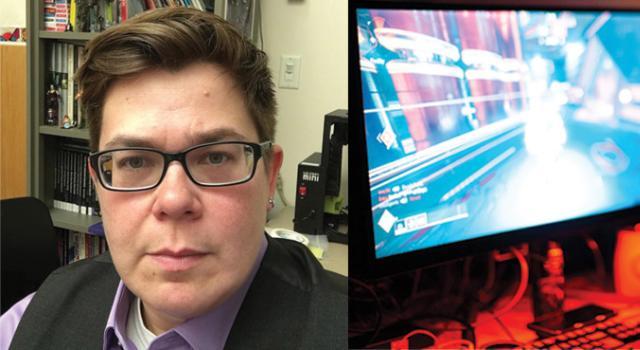Jennifer Gutterman holds a B.F.A from Syracuse University with a double major in computer graphics and painting and an M.F.A in visual FX, focusing on 3D modeling and concept development from the Academy of Art University.
Gutterman’s primary research interests are in 3D development for animation, analog and digital games, and accessibility and intersectionality of world-building and concept development for games and animation.
Gutterman developed and runs the game design program at Manchester Community College in Manchester, Connecticut, and is a freelance artist and game designer. Gutterman has spoken at Metatopia and PAX Unplugged on topics such as "Queer Worldbuilding, Eat, Drink, Be Merry: Developing Cultural Touchstones for Immersive Worldbuilding," "Queer Game Design: More Than Just Representation, Latinx Game Designers, Games and Education," and "How to Pitch: Pitching Games at Every Level of Development."
Currently Gutterman is working on several projects that include hybrid games utilizing digital and analog elements, a cooperative board game introduced at Metatopia 2018 and freelance work on several in progress projects in both analog and digital games.



